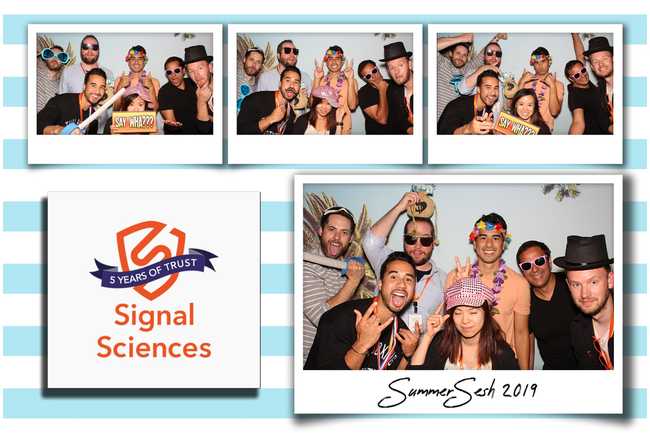Product Culture at Signal Sciences
·5 min read
In April 2018, I was hired as the third product manager at Signal Sciences. Now, a year and a half later, we have a growing team of nine people in the product team with a wide range of domain expertise from data analytics to bot mitigation. Our product managers no longer have to cover a wide array of objectives, and we have the luxury of owning a specific value stream. It has been a great experience to watch our tiny team turn into a real, established product discipline. We now leverage each other for ideas and push each other to improve our craft.
We have a very strong product management discipline at Signal Sciences and we’ve designed our entire technology org to be product driven. These are values that all of our product managers have. It’s how we’re able to keep an autonomous culture that moves at a fast pace and is always focused on a goal of shipping quickly and iterating rapidly.

No AppSec experience? No problem
Only a few of us started at Signal Sciences with a background in Application Security (AppSec). While it certainly helps to know OWASP Top 10 and understand the difference between a WAF and a RASP, it isn’t necessary to have security industry experience to be successful at Signal Sciences. This is especially true since our founders started the company with a strong background working in AppSec and know how to make security accessible.
The world of AppSec is vast, intricate, and always changing. Since we know and expect that most people joining our company have a lot to learn about AppSec, we created a seven-week-long new hire training program to onboard all new product managers. During the training, we cover everything from our hybrid SaaS technical architecture to how to give a full product demo that we could pitch to a prospective customer. What we’re really looking for rather than just an AppSec background, is the ability to quickly pick up deeply technical concepts and a willingness to learn dense subject matter.
Understand Software Development Life Cycles (SDLCs)
I get it, process can make people really touchy or bored. However, as a startup, Signal Sciences doesn’t hire project managers, meaning it’s the product manager and tech lead’s responsibility to manage a team’s process. Because of this, it’s important for product managers to know the strengths and weaknesses of SDLCs like Scrum vs. Kanban so they can work with their team to implement a process that provides the most output. Not all product managers follow a strict process, and that’s okay. It’s what keeps our startup culture autonomous and open to change.
Place trust in your team
Since a major part of our focus is to manage technical requirements, it’s easy to get caught in the weeds of implementation details when discussing a new feature. But it’s our job to keep the team focused on the what and why rather than the how.
It’s important for product managers to lead product strategy and not get caught up in implementation details.
We highly value autonomy at Signal Sciences, which means we trust our designers and engineers to take ownership of how to build out a feature and we don’t micromanage them. We play the part of a guiding light—keeping our teams focused on the overall goal and making sure the strategy and requirements don’t get lost in translation.
In addition to our day-to-day team, product also interacts with many different stakeholders such as Sales and Marketing. No matter who we’re talking to, speaking the language of each department is essential. We have to understand where each department is coming from and communicate in terms that matter to them, rather than speaking only from a product management angle.
Know the difference between product ownership and product management
We follow the standard industry term by having the title “product manager” for all our team members, but most of our team also does what is broadly known in the industry as “product ownership”. At Signal Sciences, product ownership means being ingrained day-to-day with designers and engineers in a feature team (what we call “bands”) and strategizing on a quarterly basis. This lets us deep dive on specific objectives within our product such as bots, domain management, or integrations.
Meanwhile, product management means thinking strategically long term and has a much less tactical role. Our product managers are responsible for the strategy of their products—including market research, competitive intel, and positioning. They’re also responsible for evangelizing this strategy throughout Marketing, Sales and Engineering.
To be on the product team at Signal Sciences you have to execute with both (product owner and product manager) responsibilities in mind.
Learn from each other
Signal Sciences promotes a remote culture, but only for roles that make sense to be remote. We haven’t historically hired product managers remotely because our role is highly collaborative and communication can be difficult for purely remote product managers.
Since all product managers are onsite, we’re always learning from each other and sharing experiences. Every week, we share something we’ve learned in our weekly product meeting. That something can range from talking about how we learned from a mistake, to new tactics for talking to sales or marketing. This helps us gain new perspectives and grow as a team.
All of us want to keep our strong culture of ownership, autonomy, and over communication, so we keep our expectations of a product manager clear and transparent. If you’re interested in shipping features alongside us, check out our job openings below!